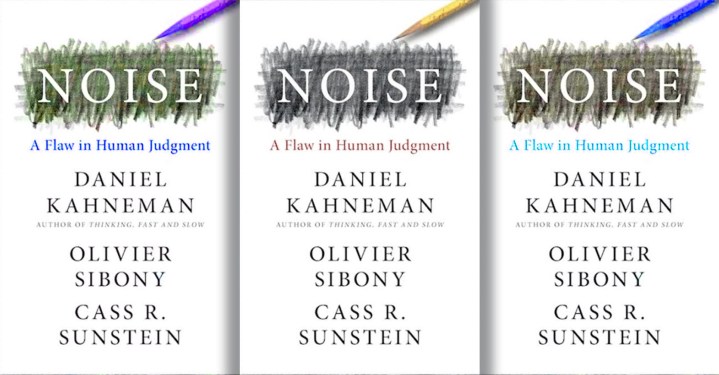BOOK REVIEW
Daniel Kahneman’s ‘Noise’ is a groundbreaking work every decision-maker should read

Known as the most influential psychologist in the field of economics, Daniel Kahneman left a remarkable imprint on the study of decision-making and behavioural forces that shape economics.
Kahneman, who died last week at the age of 90, co-authored the book Noise: A Flaw in Human Judgment three years ago on judgement flaws in decision-making.
As human beings, we place enormous faith in our ability to judge, especially in matters within our field of work. We are less conscious of our blind spots or flaws in our judgement, yet overconfident in our ability to make the right call in situations. Whether we are interviewing a candidate for a job, predicting future political or economic events, grading a script, providing medical prognoses in the case of healthcare professionals, or sentencing an accused in judicial matters, noise is at work.
In Noise, Kahneman and his colleagues examined diverse fields and identified judgement errors, but also evaluated the underlying causes of these judgement flaws. They contended that we are all prone to making errors and biases in whatever field we are in. Their book is replete with real-life examples of errors in judgement and offers a practical guide to reducing such errors.
The book is divided into six parts and towards the end provides a toolkit for decision-making. The first part defines noise in judgement and identifies mechanisms to isolate it. The second examines how the mind works and why it is prone to noise when making judgements.
Third, it discusses the existence of noise in predictive models. Fourth, it sheds light on the origins of noise, and how intuitive thinking can quickly produce biases. Fifth, it proposes ways of reducing noise in judgement. Finally, it discusses the cost of reducing noise and the importance of setting clear rules and standards as a noise reduction strategy.
Read more in Daily Maverick: What economists are learning now, marketers have (sadly) already forgotten
The authors define noise as “unwanted variability of judgements”. In other words, decision-making in an organisational context is likely to produce divergences of outcomes that are not accurate or based on scientific reason. Only when decision-making follows a series of rules or is constrained by clear parameters can it produce good outcomes.
Although the book discusses noise in organisational contexts, this work is relevant to diverse fields. It offers a mirror to the weaknesses in our thinking processes. The authors do not just reveal a flaw of noise in judgement; they explain its basis, highlight where it might play a helpful role in some cases, and propose noise reduction strategies that can help organisations and individuals improve their decision-making processes while remaining contextually aware.
Many of the strategies laid out in the book entail basic principles and rules that require awareness and deliberate, step-by-step actions – something that Kahneman discussed in his book, Thinking, Fast and Slow. These strategies also require that our judgements be subjected to some independent assessment – or “decision hygiene” – to reduce the noise before making final judgements.
Read more in Daily Maverick: After the Bell: What did Daniel Kahneman stand for? Think fast
Kahneman and his colleagues produced groundbreaking work on decision-making, offering a valuable framework for diverse fields. What is clear, though, is that we cannot eliminate noise entirely from decision-making, and in some contexts it may be helpful to have a modicum of noise.
Although the authors allude to the positive role of machine learning and algorithms in reducing noise, they also highlight the limits of these instruments. Noise is a book every decision-maker should read, and it is perhaps one of the most valuable works of reflection that Kahneman left us. DM
Mzukisi Qobo is a visiting professor at the Wits School of Governance and South Africa’s ambassador to the World Trade Organization. He writes in his personal capacity.





Comments - Please login in order to comment.